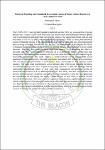| dc.description.abstract | The UNHS (2017) showed that Uganda households spends (96%) on consumption of goods
and services. A massive (92%) of household that receive their post-retirement benefits spends
it all in consumption and uniformed investments within a year and remain broke with no cash
and assets to fall on yet (80%) of the beneficiaries have only NSSF as their post-retirement
source of financial income. This ,after spending all of their working life on a paid employment
and receiving a monthly income for that service .The study sought to investigate the effects
of financial planning on household investments among primary school teachers in Lira Central
Division . The study was guided by three objectives, namely ;1) To determine the effects of
personal cash flow on household investment; 2) to examine the effects of personal dept
management on household investments; and 3) to determine the effects of personal savings on
household investments. The study adapted a cross-sectional survey design with purely
quantitative research approach. The study population constituted 165 primary school teachers,
who are paid from government ‘s consolidated fund, and sample of 118 primary school
teachers. The study used questionnaire collect primary data while mean, standard deviation,
correlations and regression were helpful in analyzing quantitative data. The findings indicate
statistically insignificant effects of cash flow, dept management and personal saving on
household investments in Lira Municipal Council. The study therefore recommends that
primary school teachers should be exposed to financial education so that they can appreciate
the significance of developing and using a financial plan to help them to achieve desired
household investments which can continue to generate more income, supplementing the salary
which is main source of income. In consideration of the fact that most primary school teachers
have high operational expenses some of which are facilitated by credit, it is important that they
prioritize short term fiscal discipline in order to guarantee a future of financial freedom fed by
streams of investment income from household investment | en_US |

